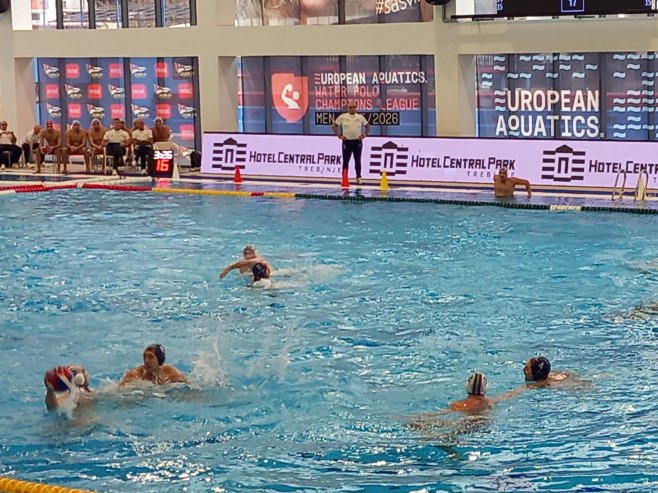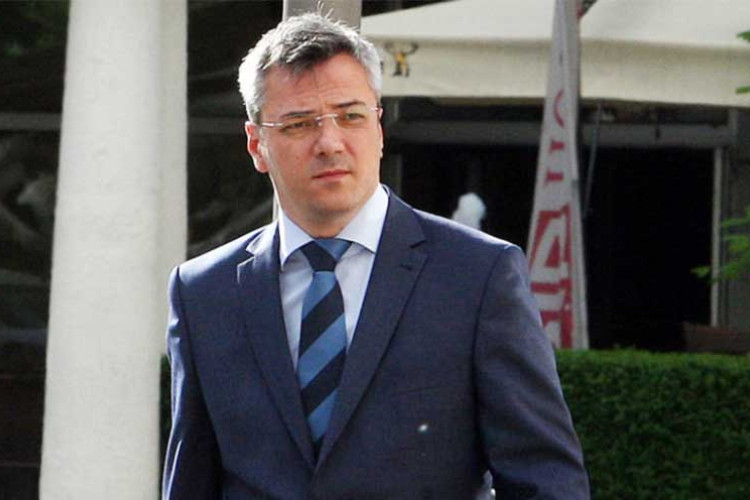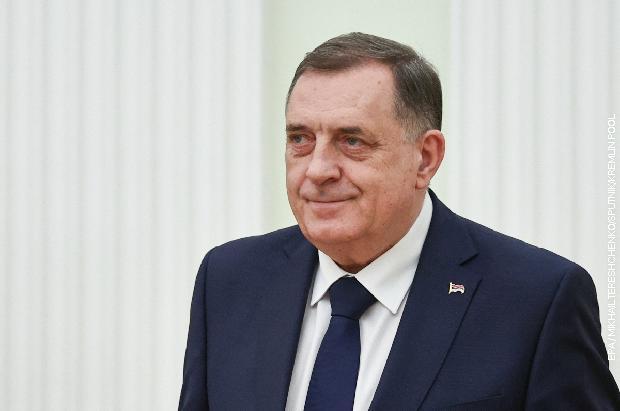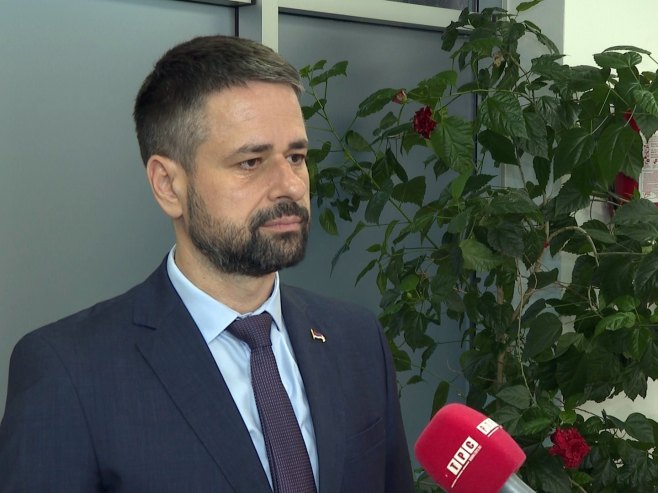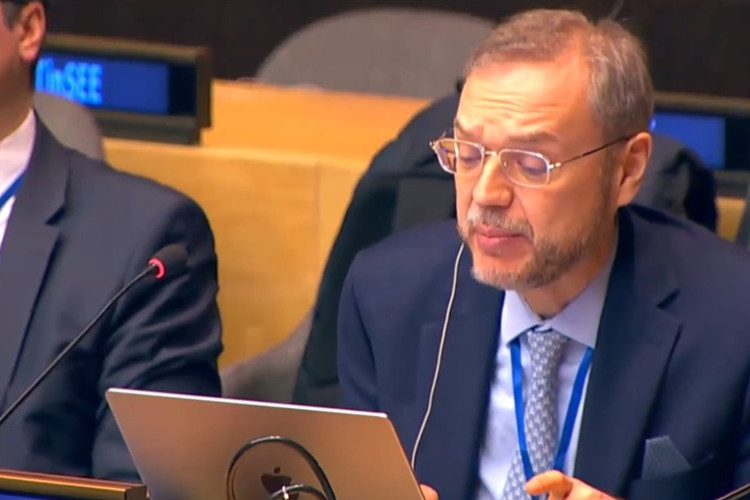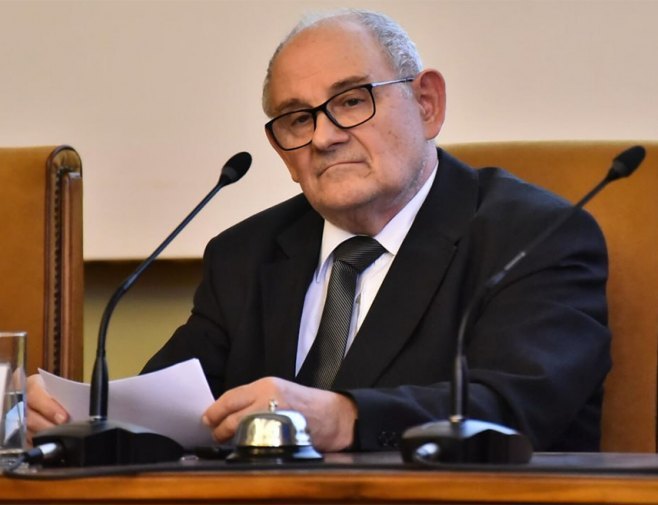If the United Nations truly desires to prevent war crimes in Southeast Europe with a concrete action, the only effective measure would be to re-divide Germany into two parts and erect a new Berlin Wall. Only during that period was there neither war nor consequent war crimes in this region, stated lawyer Ognjen Tadić for banjaluka.net.
We present the column in its entirety:
Given that such a decision is unfeasible, the UN should scrutinize any document proposals concerning the assessment of war crimes in these territories from at least three perspectives before making any decisions – the proposers’ justification, the text’s justification, and the motives’ justification.
Attempting to articulate the issues with the proposed resolution that will be presented to the UN General Assembly succinctly, to minimize the inevitable misuse and malicious interpretation of anything I write on this topic, I will present just a few critical questions.
Controversial Proposers
The proposers of the resolution are Germany and Rwanda. Just as Bosnia and Herzegovina was occupied by the German world after the Berlin Congress of 1878 and fell under the Viennese imperial crown, so too was Rwanda occupied by the German world a few years later, after the Berlin Conference of 1885, and fell under the Berlin imperial crown as part of German East Africa. At that time, in Bosnia, the Turkish millet policy of stability favoring Muslims gave way to a Latin policy of divide and rule, favoring the minority Catholic faction (below 20%) and sowing discord between the majority Orthodox (above 40%) and the then still less numerous Muslim corpus (below 40%). The Germans in Rwanda concluded that the minority Tutsis (below 20%) were more suited to be the ruling class than the majority Hutus (above 80%), noted for being slightly lighter-skinned.
Since those days, a divide and rule policy was also established in Rwanda. Germany’s downfall in World War I meant losing influence both in Bosnia and Rwanda. In our region, Yugoslavia was created, and Rwanda received Belgium as its new colonizer. In World War II, the Germans returned to our territories on a much larger scale than in World War I – including the genocide against Serbs, Jews, and Roma, repeating war crimes, particularly in the NDH territory.
After World War II, Germans were not militarily present in Bosnia unlike in Rwanda, where in the 1970s their military forces trained Rwandan military units. However, a wide network of collaborators that the BND inherited from the Nazis, Gestapo, Abwehr, Vienna’s spy agency, and descendants of spies who had reported to the Germans during the Ottoman times about the movements of Turkish troops and caravans, and what was happening and being discussed in the bazaars and mahalas, diligently worked on preparations for the breakup of Yugoslavia. Following the reunification of Germany, both Yugoslavia in Europe and Rwanda in Africa underwent bloody wars. To be brief, today both Rwanda and the newly formed Dayton Bosnia and Herzegovina strategically represent territories over which Germany seeks to renew and maintain a lasting tutorship status.
The UN General Assembly must be aware of the controversial nature of Germany as a proposer, as if there had been no German criminal influence and presence in Bosnia, particularly related to the events of the two world wars and the breakup of Yugoslavia, there would not have been a war in Bosnia from 1992 to 1995, nor the subsequent crimes.
Controversial Text of the Proposal
The text is based on three fundamentally controversial claims that completely discredit the resolution proposal and avoid facts established even by the judgments of the so-called Hague Tribunal.
Firstly, the resolution proposal refers to UN Security Council Resolution 819 from April 16, 1993, which declared Srebrenica a safe zone. This tries to highlight that the crimes in Srebrenica occurred due to non-compliance with this UN Security Council resolution by those convicted. It’s important to note that the proceedings before the former so-called Hague Tribunal repeatedly established that there were no shootings or captures in Srebrenica and Potočari, as areas of the protected zone. Conflicts, battles, and crimes occurred outside the protected zone, following attempts by the so-called Army of BiH to break through the positions held by the Army of Republika Srpska from within the protected zone.
Secondly, the resolution “reminds states of their responsibility to protect civilians and respect, protect, and ensure human rights for all those on their territory and under their jurisdiction, as prescribed by international law, further affirming each state’s responsibility to protect its population from genocide, war crimes, ethnic cleansing, and crimes against humanity.” The resolution proposal avoids mentioning that the victims of war crimes committed in Srebrenica in July 1995 were generally uniformed members of the so-called Army of BiH and those who joined them in the breakout action, thus altering historical facts established by the so-called Hague Tribunal’s judgments.
Thirdly, it emphasizes that “the prosecution of persons responsible for genocide and other international crimes in national judicial systems, including the Court of Bosnia and Herzegovina, the so-called Hague Tribunal, and the Mechanism, remains central to the process of national reconciliation and building trust and for the restoration and maintenance of peace in BiH, further recognizing that strong regional cooperation among national prosecutions is essential to fostering peace, justice, truth, and reconciliation among countries in the region.” This seemingly tries to say that so far everything has been just in relation to the prosecution of war criminals and conceals the fact, even legitimizing, that before the Hague Tribunal and the Court of BiH, a principle of irresponsibility for crimes committed against Serbs has been established for decades, which in no way leads to reconciliation and trust.
Moreover, from the war to the present, whether there was genocide or not, even regardless of the provisions of the Criminal Law of BiH that forbid it, remains a subject of debate not only in Republika Srpska. For instance, while guesting on Radio Free Europe in 2017, Reuf Bajrović accused Bakir Izetbegović of “equating Srebrenica, i.e., the genocide in Srebrenica, with what happened at Blajburg in 1945” (https://arhiva.tacno.net/nasigradovi/reuf-bajrovic-niko-nema-pravo-izjednacavati-srebrenicu-i-blajburg)
In a debate on OBN TV in 2022 with a counterpart who points out that no member of the so-called Army of BiH who committed crimes against Serbs in the Srebrenica region and Skelani has been held accountable, Haris Zahirović from the Party of Democratic Action says: “They have been held accountable. They were sentenced when they entered Srebrenica, when Srebrenica was disarmed, when they surrendered their weapons. All adult men were sentenced to death without trial” (https://www.youtube.com/watch?v=Vl6pi0zmPCM, – 28’25”).
And German journalist Michael Martins in an authorial text from 2023 compares the crime in Srebrenica with the execution of Pavelić’s Ustaše and other collaborators at Blajburg in 1945 (https://www.dw.com/bs/bleiburg-ne-treba-nikakva-komemoracija-nigdje/a-65804398), etc.
Thus, not only in debates with those who claim that there was no genocide, but also among those who claim that there was, there is no clear designation of exactly what crime is being discussed, as it is an unavoidable fact that both at the moment of the crime’s commission and today, there was and is a perception that it was primarily motivated by revenge directed at the units of the so-called Army of BiH that were breaking through the territory of Republika Srpska, whose members during the war, especially in 1992 and 1993, committed crimes against Serbian civilians and war prisoners in Srebrenica and the surrounding areas. I personally documented one of these crimes as a war reporter reporting on the victims from the village of Podravanje in 1992.
The UN General Assembly must be aware of the controversial nature of these claims and accordingly not adopt any text of the resolution that, instead of further reconciliation, could provoke new conflicts.
Controversial Motives of the Proposers
The war in Ukraine is clearly not going in the direction some Western Ukrainian allies had planned. Now, each of the engaged Western powers is looking at how to employ their interests on a broader European scale before an agreement is reached to end this war, which could bring a more permanent division of interests map in Europe.
As large as Ukraine is, it still is not sufficient to satisfy the appetites and costs that have emerged in connection with the latest ambitions for penetration into the east – into Russia’s resources. Too much money in loans that need to be repaid and weaponry that needs to be paid for; It will not be enough even for American interests.
On one side, President Emmanuel Macron with war rhetoric attempts to secure for France the status of a peace negotiator, thereby fighting for a position with which he could repay some of the war debts to his creditors.
Poles and Baltic states are already looking to conclude separate agreements with Zelensky. Classically dedicated to territorial strategy, the Germans remain significantly restricted in their maneuvering space towards the east in this context. Moreover, Germany’s occasional double game in the conflict in Ukraine makes their Western allies suspicious of German interests, but perhaps that’s exactly why Germany hopes that during the negotiations, the opposing negotiation side’s favor regarding settling German ambitions through Southeast Europe might emerge.
Earlier, Germany showed its cards by sending, in 2021, Christian Schmidt as the high representative of German interests in BiH without the consent of the UN Security Council. Everything Schmidt has done since then has been to renew the divide and rule policy and complicate relations in BiH.
He further alienated Croats from Bosniaks (BiH Election Law), then Bosniaks from Bosniaks (abolishing the constitutional order of the Federation of BiH for 24 hours to form the Government of the Federation of BiH under the leadership of Nermin Nikšić), and Bosniaks from Serbs (replacement of foreign judges in the Constitutional Court of BiH), and he continuously works on alienating Croats and Serbs (breaking the understanding between Milorad Dodik and Dragan Čović).
He has also alienated foreign Western ambassadors, especially on the issue of European integrations. The failure of Schmidt’s policy was the opening of EU negotiations with BiH, but this proposal resolution will come as a trump card to destabilize BiH despite this and make it susceptible to German domination. By adopting a resolution on genocide that would be adopted in the UN General Assembly, Germany would present itself as newly moralized and cleansed at the UN from responsibility for all its past crimes, as well as from responsibility for those crimes that arose under its influence (millions of victims – killed, tortured, refugees, wounded;), and all of us who live here are afraid that then, by the usual rule, the circle of misfortune and crime would start anew.
The UN General Assembly must be aware of the contentiousness of such motives and accordingly prevent the realization of such plans. And that precisely in the interest of peace and preventing any future wars and crimes that inevitably come with them.
Source: RTRS

